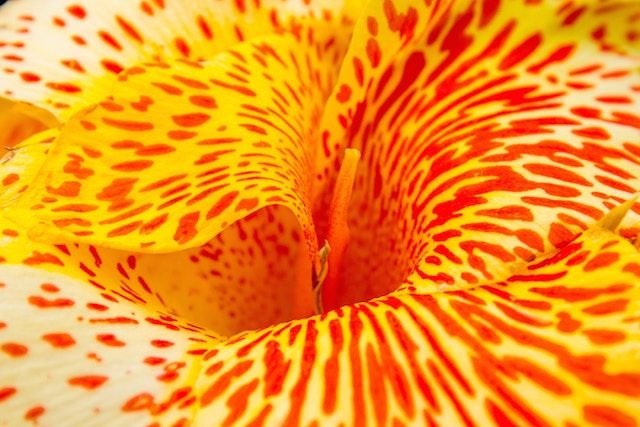
There are different ways of interpreting the Buddhist teachings. As I have exchanges of views on this, I would like to explain my understanding of the term "attachment".
The doctrine of attachment is embedded in the four noble truths of Buddhism. I will not look at it in isolation.
What does it say about attachment?
Simply put, as a human being I can reach three states to perceive one thing:
- as wanted, (pleasure)
- as unwanted (non-pleasure)
- as neutral.
Toskana - I'm comin!
Insofar as I feel that one thing is wanted - for example, a holiday - I plan and carry it out. If I take this vacation as it was, it's all good. On this holiday I can enjoy what was good and acknowledge what was not so good.
I start clinging to holidays when I look back in nostalgia, like: ... Sigh ... "Oh, God, what a beautiful thing it was. ...Sigh ... At that time, everything was better and lighter and there's nothing better than Italian food. I wish I could enjoy it every day."
The same happens when I get stuck with the less enjoyable things, like an argument I had with a friend during this holiday. My thoughts - all spikey (!): "It was really not necessary that he approached me so hard! He still hasn't apologized for his harsh behavior. I'm not gonna invite him to my next party because of that. Why doesn't he finally apologize?"
In my view, the doctrine of attachment is extremely practical. I understand why I should integrate it into my present life.
Because I encounter hundreds of situations in my everyday life that cause me to either have them absolutely or not at all.
Oh, no! The box is empty! Why is it always empty?
Whenever I have problems with wanting something and not getting it because people reject me, I fall into the trap of attachment. If I absolutely have to make a "yes" out of a "no" and do not want to understand that the person I try to persuade is not willing to make a promise to me, I am causing misery. I am not so much a pain for the other one, rather I am for myself.
One Million Dollar Question: Who never leaves you?
The other one may go his own way and be left alone by me, but I remain in my own company and should, therefore, know a way why it is better not to stick to a matter. Similarly, as if a woman has a strong desire to have children and no treatment has served anything to get her pregnant. Often it is reported that once she let go of her desire to have a baby, the pregnancy came out of nowhere.

The reason why I want to learn to become unattached is that I spend my life in my own company and don't want me to be the cause of constant pain.
Where can I exercise?
In order to recognize the correctness of this approach, I need experience and consideration of these experiences by asking myself: How have they harmed me then and how can they harm me less now?
This includes painful events themselves. I can bring up a tormenting experience and say: "My dying mother's suffering has led me to feel a dear empathy for her. Her suffering has made me realize how much I can actually put myself in the service of a person. Without this experience, I would not have realized that I have the strength to accompany her dying process without plunging into despair.
I don't need to be attached to the experience that she has died and torture myself by asking (full of guilt): "Could I not have been able to do anything else? Oh, my gosh, why was I so cowardly? Why didn't I do this or that? Why were they all so heartless?"
Besides, I can give this experience to other people. Give them courage and serve as an example of what can be done for a dying person.
Ungratitude is the world's reward - frowning
If I would attach myself to the heartlessness of the others that I witnessed during this time, I would remember what is bad and heartless in the world at the moment one tells me about death. I would fail to ask the person affected what gives him courage and strength. What good experiences there are beside the bad ones. I would dump my own grief over someone else, and I would think that my confirmation of heartlessness would bring relief to him.
Isn't it wonderful, isn't it wonderfully beautiful? - excited
A shiny form of attachment would take place if I were to rave about the experience of my mother's death in the highest tones as an "enlightening and spiritual experience of a very special kind" and make it look as if there had not been any pain and suffering involved.

To look at attachment in this way, Buddhism was of valuable support to me. It appears that the attachment doctrine is gladly thrown overboard by the two poles I described for this very reason. I see an over- or under-interpretation and my conclusion is that these exaggerations and understatements serve to prevent the doctrine from being accepted.
Buddhists are a gang of egalitists (I know this term doesn't exist)
What irritates me is that accepting the attachment theory could mean to throw all care out of the window.
For me, that is a kind of conscious misunderstanding, a rejection (one doesn't want to have it). Because if you look at the church in the village, then Budhhists are not these unfeeling people who do not care. They may also sometimes be trapped in their ivory towers and schools, but in the practical life within their communities, they provide active help. Hardly anyone in need will be left alone by the monks and nuns, especially not when a relative lies on his deathbed.
Confirming complaints, judging, cursing, pitying, that is not caring. To "care" means being present in one's life and giving a hand when it is needed. A present state of being which is calm, neither offensive nor defensive gives those who experience it the feeling of being taken care of.

Why does it happen that unattachment is misinterpreted as "non-caring"?
If I am having an encounter with another one and he tells me about something which bothers him, rants about it, does it mean that I merely recognize this as an attachment, saying to myself: "Pah, I am not caring for this fool. Neither will I say or do anything. Arms crossed." ... Now, that sounds wrong, doesn't it? But isn't it what actually happens?
For example, I was talking recently to someone who wanted to discuss her concerns about an event which changed her life. I was first listening and then asking about what opportunities she saw for herself. Neither I pitied her like „Oh, that’s too bad, how difficult that is, indeed!“, nor did I jump all in and told her, what I would do - smart as I am - if I were in her shoes.
I asked reasonable questions about her current situation, what aspects she is going to consider and what the possible consequences would be. After she gave information, discovered solutions on her own she sounded more clear about what she could do we finished off our talk. I did not dwell on my clever objection or artificially engaged myself on this or that remark.
Caring doesn't equal making sounds of sympathy
Later on, she rung me up again because meanwhile something happened which did not please her and she was all up complaining. As I had nothing to add and not wanted to strengthen the complaint I refused politely to talk to her and ended the call.
I wouldn’t have done her a favor in joining her lust for sensation and also I sensed that she was not in the mood for being calmed down. I decided it would be the best to leave it and let her steam off. I did that for a caring reason. Of course, she could have gotten that wrong. But as I put trust into our relationship I know that she will be grumpy only for a short while and then recover.
Infectious stickiness
Would I have fallen for her attachment in not accepting that she was not pleased (!) I would have simply joined the club and felt reminded on all the events which did not come out the way I wanted them to be - clinging to my own stuff.
We then would have otherwise agreed on how often "life and people suck". We then probably would have skipped this nasty topic (feeling as the better people anyway) and exchanged thoughts of how we could please ourselves in this or that way. Like: „And, what are you going to do after work?“, exchanging pleasing activities: „I will do some sports, I will have a nice dinner, I will meet a friend for a theatre night“.
It often let me dissatisfied when I used to talk that way, merely chatting but nothing, in particular, was said and done. If you are convinced that chatting is somehow serving you well, you should not go on reading:)

News: there will be always news
I am not saying that I got rid of my attachments. I don’t. I will deal with them ever so often they appear. Would they not appear, I would be dead. As life is an ongoing process new events are going to happen and with them new chances of sticking myself to the wants and don't wants.
Who cares?
To be in service of other people is what Buddhists understand as „caring“. Not too much involved as well as not enough engaged is a good picture to place me right in the middle. That is somehow difficult to always see.
I can only take bad care of a fellow human being if I myself am entangled head over heels in my attachments.
Then his or her problem allows me to jump on my own and, instead of being supportive to one another we are superficially exchanging pointless praises or complaints.
Jadda-jadda-jadda
That is what creates a distaste when I witness an endless stream of chit chats. Of course, people are having their creative ways of attachments. Instead of talking they use action to feel significant - or both (!).
Don't talk, act - kaboom!
They carry ideas about saving the world, making society a better place, curing all diseases, even create life themselves. Either gender falls for ideologies and ideas about "fixing humanity once and for all and conquer nature".
What I so far understood from Buddhism: None of it will do. To ridicule the Buddhist approach in pretending they offer a non-acting and non-caring view is a misled perception.
How come, I dare to state that so bluntly?
I checked.
When I first heard of attachment and so far was trying to understand it I thought I must check if it works in my life.
So I tried to be in touch with taking it out of the book (or the youtube lesson) and bring it into my life. Would that give me prove that if I am able to let loose my attachments that I do not feel the same pain compared with my former strategies?
The answer is: yes. It worked many times. Engaging and caring for people in this spirit feels different now. I am ruminating less about incidents like lost money or broken dishes. I know there will be earned new money and I can replace the broken dish. I was not panicking as a phone call came in that my teenage son had an accident.
What is better now is that I can let go of clients. Not clinging any further to the notion that "I can save them" thinking of myself as the savior of the poor and disabled. I see them in a clearer light than before. I am better at not letting them come all over me disturbing my sleep or free time. What would my clients gain from my sacrifice when I’m all broke and tired?
Am I perfect? No.
I will continue with trial and errors.
It will happen that I argue too much. That I step over borders and will let others step over mine.
When I came home after work, I stopped with my bike at a traffic light.
It was rush hour and the cars were all over the cross-road. I was looking at them: "It’s the same with the cars as with humans."
There must be a certain distance held but how can one tell what’s enough other than having an accident? It could be a perfect distance if all people would use their brakes and gas pedals simultaneously. But of course, that never happens. Can I say that? Without cursing all those "idiots" not paying attention?
There are always people who are distracted and make mistakes. You can hold the proper distance to the car in front of you and then, all of a sudden, you jump forward as - Bang! - the car behind you crashed into yours.
An accident is - I would say - already the king's discipline in practicing non-attachment. For beginners, I would recommend small things like not getting a coffee in the morning and stay cool about it. Or being late in the line at the supermarket. Also not getting a greeting from a co-worker and feeling as content as before the non greeting happened.
Stuff like that.
Now a list of attachments, in case, you need a little helper in the end:
- being looked at while not wanting to be looked at (bad hair day)
- wanting to be looked at while nobody looks at you (good hair day)
- craving for chocolate while none is on the kitchen board
- craving for cookies only to find chocolate
- wanting it to rain outside because of feeling like hiding under the blanket would be nice
- wanting sunshine while it rains
- feeling dark in the company of cheering people
- using a sex partner after losing a partner
- hating your parents and wanting them to love you
- wanting company without engaging
- wanting to be somewhere else and after getting there wanting to leave
- feeling old and wanting to be young
- feeling young and wanting to be older
- wanting not wanting
Feel free to continue that list.
Photo by Rosie Kerr on Unsplash
Photo by Jeremy Perkins on Unsplash
Photo by Peter Hershey on Unsplash
Photo by Lin Mei on Unsplash
So you basically mean that detaching from people and situations, and watching as an objective observer (as objective as one can be), we should try to see things remotely and plan a course of action based on the alternative solutions and the benefits-drawbacks of each one?
To add something on your list, because I just remembered a friend of mine: "wishing your workplace caught fire at night so you don't have to work tomorrow, because you don't like either the place or the people or the duties or all of them..."
And one from my list: "choosing to see the restrictions in order not to make use of an opportunity out of fear of change and failure..."
Hey hello to you,
... hmm .. no, that is actually not what I tried to express. "Remote" and "Objective" doesn't feel like an accurate term here ... To be un-attached: you're still subjective and you're still in very good touch with either yourself or a person you encounter. Neither too deep down nor too light.
I can describe it at the moment best when I take the extremes:
Extreme left side: I feel totally dragged into the suffering of another one, almost cannot bear what he/she went through or the other extreme on the right side: I distance myself so much that his/her suffering cannot reach me and pretend (or even believe) everything is fine and easy. Nowhere at the outer edges (extremes) is real empathy in sight, so the middle would be good.
To feel empathy (instead of despair) and to care for what is needed (without disrespecting or minimizing the suffering) in the present situation.
Thank you for adding more to the list, I appreciate examples a lot!
The one from your friend is really bizarre :-)
Yours is quite common, you are in "good" company with that.
I see, I think I need to re-read your post after your clarification :)
As for my friend, it's a looong story :P
:-P Yes, I can smell that it's a long story. We all have them as well, don't we?
I think it's a very interesting outlook on life. Many times I have questioned myself, my attachments and detachments, but I understood (beyond any theory) that I am attached to those "things" and people that make me feel in a pleasant and positive context, and I am detached therefore, when the opposite happens.
Through his post, I can understand that the important thing is to know how to elucidate the subject matter, based on the context in which we live and the people around us, by analyzing and interpreting everything that leads us to experience individualized and shared feelings and emotions.
In particular, I tend to be attached to the people I love, and I echo the detachment, with those who do not make me feel in my element, which seems to me to be right in the search for inner peace, and then be able to reflect it to the outside.
Congratulations....
Thank you for your response.
I hoped that I could deliver some widening perspectives.
I would go even further in saying that those people who do not confirm your being in your element are the signal givers for your attachment to confirmation. ... When you echo a detachment, what exactly are you echoing? I don't know if I understood that correct...
Would appreciate an answer to understand you better.
What I mean is that I attach myself easily to people and situations that make me feel good, that allow me to grow as an individual, and I detach myself from that which otherwise does not bring me anything positive. That's why I like your perspective on the subject, because it allowed me to assess both sides of the scale. That's an excellent reflection!
I know that many times, it is not good to be attached to people, to places, because when the time comes to travel to another place, for a short or long time, or to leave for another spiritual plane, the emptiness that remains affects psychologically, but, on the other hand, it is very difficult not to be attached to what makes us feel good, like the company of relatives, friends, pets, a particular place.
I believe that attachment or detachment will depend on what makes us feel bad and good.
Thank you. What you say makes a lot of sense and is commonly experienced.
To feel good in the company of those who we love or respect is natural and needn't to be changed. Only the leaving - thank you for mentioning that - causes problems. I feel every time a loss when I visited my family and have to say goodbye to them. Children are much more un-attached and immediately can go with the present flow. They take on the actual moment.
To experience the beauty of a sight, a lovely summer day and appreciate it is not yet attachment but missing it and feeling empty without lovely summer days cause suffering. I have a friend, who has difficulties to enjoy a gathering as she already is mentally in the future and feels beforehand the pain connected to departing. Still, that is also a common feeling; I wouldn't recognize it if I wouldn't have felt it myself.
When it comes to detaching from what is negatively experienced it's even more tricky, no? When I am not confirmed or questioned or badly treated I felt that my attachment compared to the positive experiences can be even stronger. Like having a conflict with someone and ruminate for hours, weeks or months about a long ended encounter. To twist and create inner dialogues how they should have taken place and what I should have answered and so on. So, someone - who is of importance to you - is telling you: "You are wrong!". How difficult it is not to argue about the wrongness ... but instead asking for what the other is needing instead of defending the attached part of the self to be confirmed right ... or at least to come to an agreement? ... Not easy, I would say. That's why I find this teachings extremely intelligent and helpful.
What I found out is that my greatest learnings came from personal conflicts in which I suffered because of attaching myself too much to the judgement of the other (out of self-doubt). To let go of the hurt feelings is really a master discipline. I guess, you might have similar experiences.
Thank you for engaging. I wrote more I intended to - it's rainy and cold outside and I have hours ahead of free time. Have a good day:)
The thing is, life and people are unpredictable. It includes me; and the truth is that we would not want to live negative moments, but they are inevitable, just as the positive ones are not. A friend once told me that I should live the good and the bad of life with the same intensity. At first, I didn't understand him, I didn't understand her, but time has allowed me to get to the truth of her words.
Eleven years ago, I became ill with cancer and was given a few months to live, and although I experienced something of a nightmare, because of the illness, I remember that it was even more painful, that my partner separated from me, because he believed that I was going to die. But I fought for my life and I survived. From that experience I learned that no matter how much you love someone, at any moment you can have a rupture (by travel or death); and that's why you can understand that I must enjoy the good and the bad at the right time, accept it as a learning experience and move on. It's not easy, but we have no choice.
Three years ago, I lost one blood brother, and a month ago, just today, May 1, 2018, I lost another. Both in very tragic circumstances. In 2014, the death of this deceased brother greatly affected my family, apart from his death, the fact that I gave myself up for my pain. Almost a year later, with therapeutic help, I was able to recover a little. Now that I am living the experience very similarly with my other deceased brother, I have taken it a little more calmly, though with the same pain of losing a loved one.
That's why I believe that you should live to the fullest the moments next to the people you love, love, respect, in this way even the landscapes, the home, everything around you looks more beautiful and comfortable. On the other hand, I avoid moments with people I don't like and if I have to, for whatever reason, I try not to be affected by their presence.
A big hug, very respectful...Happy new day, for you too...
Thank you so much.
I want to express my heartfelt compassion. The death of loved ones is always a time of pain. Thank you for sharing this with me and talking about it so openly, that is courageous and honest. May your brothers rest in peace. You've already endured a lot of loss and fear in your life. It's not difficult to understand that you choose your words the way you did.
I am grateful for your example of overcoming cancer and that, contrary to all predictions, you have chosen life and are so very much alive in representing it. How brave of you not to have accept that prediction. It is true, you can never claim anything for sure, not things, not people. Life is characteristic of this and its many examples. I want to pay my respects to you, too. There's nothing more to add.
Take my hug.
P.S. if you would like to add some more, my senses are open:)
I would like to add much more, but for now, I think the most important thing, is to show my thanks for reading my words, when in reality, perhaps, you are the one who needed to be read in what you wrote. I think that what stands out, in any case, is that we manage to establish a communicational bond, and to share thoughts and experiences, which, by the way, is what makes us grow and improve with the day to day.
It has been a pleasure for me to communicate with you through this social network, and I thank you for your words of support and solidarity. I also want you to know that your testimonies have made me much more sensitive. I believe that when we open ourselves through mind and words, to other people, contexts, others, we receive positive feedback, which helps us to know ourselves even more, and we learn to know our peers, and that in itself leaves a learning experience.
I am, humbly, at your service, to continue with what I have begun: a possible friendship through Steemit. Thank you, thank you very much!!!!
Excellent post! Thank you xx
many thanks:) - what did you gain from it, may I ask?
And as it says - breathe is what connects us to everything. We can not stop breathing, it will eventually come back even if we try. Inhale and exhale. Ups and dows. In waves. Trough towns.
Thank you for making such a pleasant read and enlightening others on the power within ourselves.
Peace, love and gratitude!
Thank you very much.
Would you like to give an example where what I said about attachment worked already for you? Did you check yourself the teachings of Buddhism? What I like about the doctrines is that they do not ask for blind believing in them but to transfer and verify them into our personal lives and see how the methods work.
All the best for you, too.
From what I've experienced - attachments are only limiting your ability to move forward, higher towards the sky and your dreams! How we are always attached to each other is our breathe and it has come from the word spirit. Spirit is our breathe. To calm your spirit - simply have a nice and slow breathing routine while observing how those thoughts you had fade away and are replaced by different ones. We're like tuners able to switch the ''station'' of thoughts that we're listening to. Waves and vibrations.
Have a wonderful day!
Thank you. If you don't mind I would like to know a certain experience of a practical nature of yours. Where did what you describe help you in order to get along with a problem or an issue of yours or a situation between you and another one? If that is not too personal to ask. What did you exactly replace with what?
It's about breaking up and then being together again. Now I just know how to ground myself better with earth and what I really want. Nothing much to tell exactly. Just a change of perception by what goes into my mind.
Appreciated, thank you. Good to hear that after breaking up you got back together. Change of perception is really not so easy.
Have a pleasant day.